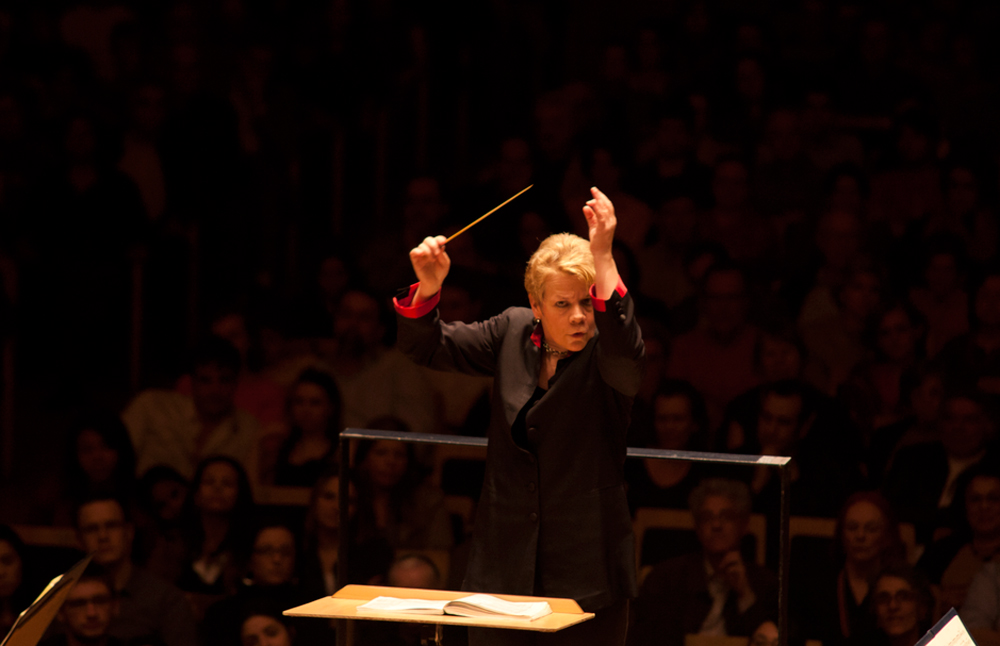“That for me is the worst four-letter word — ‘can’t,’” Marin Alsop says towards the end of “The Conductor,” having overcome it herself nearly two decades ago to lead the Baltimore Symphony Orchestra when no other woman had been appointed to such a position anywhere else in the world. Purged from her own vocabulary, she still hears the word far too often from those she teaches and in Bernadette Wegenstein’s engaging profile of the music director, you’d think she might have enough drive to remove it from Merriam-Webster.
Ironically, “The Conductor” would seem to come with its own limitations when there’s a natural structure for biographies to follow and what the job entails can be hard to define, yet Wegenstein honors her subject by transcending them, looking at how Alsop has taken her own hard-won status to seed musicians around the world who could make orchestras more diverse in the same way she sees how one instrument can complement another when conducting. It wouldn’t have made much sense to most audiences for the director to spend too much time observing Alsop from the podium, admiring her technique, so much of the film is spent away from the stage as its subject keeps up a busy schedule that follows her from Baltimore to Vienna and São Paulo, where she serves as a guest conductor, and continues to makes time to teach at Juilliard and nurture female and Black composers through her own initiatives.
Early on, Wegenstein wisely includes an old clip of Alsop’s mentor Elmer Bernstein to explain what a conductor does, with their instrument being “100 different human instruments,” but you come to recognize it is there less to show what genius Alsop has musically than she has for seeing how the world operates, deciding to start her own swing orchestra comprised only of women when her studies at Juilliard were unsatisfying and using the occasion of a wedding gig to ask a businessman to fund an orchestra for her to conduct when told as a woman she never be able to through traditional channels. The rejection stories are myriad and attention grabbing, but the film’s most interesting thread may be why Alsop was uniquely prepared to persevere after being groomed by her parents — her mother a cellist and her father a violinist — to be a pianist so ideally they could form a musical trio. Not appreciating then being put into a particular box then, she has placed a premium on trusting her own instincts and encouraging the natural inclinations of the musicians she works with rather than try to shape them in a specific way.
“The Conductor” extends that belief to its presentation, admirably a bit unruly when both Alsop’s personal progress or what she hopes to achieve generally doesn’t follow a straight line and it gives about as much attention to her personal life as you suspect she gives it herself, with her spouse Kristin quite candidly talking about how her professional drive has detracted from her focus on their son, a potential bit of history repeating itself when Alsop’s parents had to work relentlessly to keep a roof over their head. The fact that certain cycles persist in spite of people as determined as Alsop trying to break them only goes to show what she has been up against, but like its subject, “The Conductor” pushes ahead to find new notes in a classical form and presents a dynamic portrait of an artist who will hopefully be less and less unique as the years go on.
“The Conductor” will screen virtually through the Tribeca Film Festival beginning June 15th through June 23rd. It will screen physically for free at Marine Park on June 18th at 6 pm.




